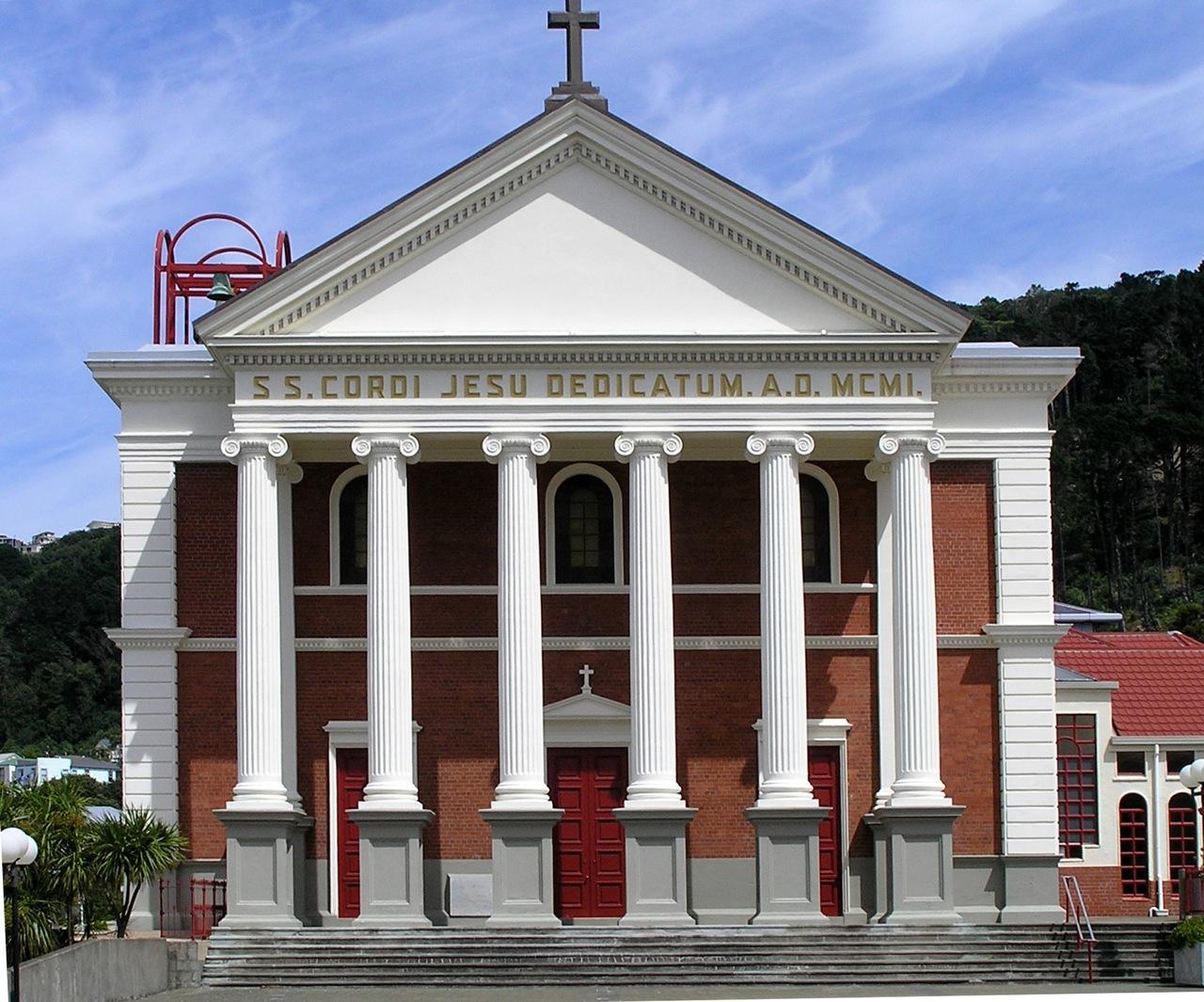Church leaders in New Zealand say they are renewing their “sincere and unconditional apology” to people who suffered abuse in Catholic settings, but must “demonstrate our apology by taking responsibility and through concrete actions.”
In July, a commission in New Zealand singled out religious communities — and in particular, the Catholic Church — for failing to address or prevent abuse children and vulnerable adults in care facilities.
The Royal Commission of Inquiry into Abuse in Care spent six years holding hearings and investigating events from 1950 until the present day.
RELATED: Abuse commission in New Zealand points to Catholic Church in particular
In its response to this report, New Zealand Catholic Bishops Conference president Bishop Steve Lowe and Congregational Leaders Council of Aotearoa New Zealand president Father Tom Rouse said the Catholic Church had joined other churches and asked to be included in the terms of reference of the Royal Commission, which initially would have looked only at state care.
“We believed it would help not only the Church, but also our country, address these difficult truths in a more comprehensive way,” they wrote.
The Church’s response focuses on 11 key sections of the final report that relate to the Catholic Church specifically or to faith-based institutions generally. The majority have been accepted, with some being accepted in part.
“We accept the important and particular responsibility the Church has at this time. We want to be part of a wider, whole-of-community promise to use the Royal Commission’s findings as a catalyst for change,” the Church leaders write.
“May each of us, in our own context, join a national movement that not only says – but actively ensures – that this tragic past will never be repeated, working together to achieve a future free from such harm,” the statement says.
Responding to specific abuses registered in report, the statement said Catholic entities “deeply regret the abuse that occurred in our institutions.”
“We recognise that this cohort of survivors represents a subsection of those who have been abused in state and faith-based care. Catholic entities have shared our own statistical research on reported abuse in Catholic institutions during the Inquiry period,” the Catholics response reads, however, it adds further work would need to be done to make an adequate comparative analysis with “Catholic institutions in general.”
The Royal Commission also put the Catholic Church at fault for the harm that has taken place in some Catholic educational institutions, including serious sexual harm and inappropriate physical punishment, inadequate steps taken in response to complaints of abuse and neglect, and putting students at risk of harm by appointing abusers to the school without effective methods in place for protecting students.
The Catholic entities accepted this criticism.
However, Church leaders only partially accepted the criticism of “placing a heavy reliance on the opinions of psychiatrists in determining the ability of an abuser to rehabilitate and continue working in certain areas or in ministry, which resulted in abusers being transferred to other areas of ministry where reoffending occurred.”
“The placing a reliance on the opinions of psychiatrists was best practice at that time. The reliance on psychiatrist opinions was accompanied by naivety and other assumptions that are now understood to be incorrect, including a belief that the individuals could be rehabilitated and a lack of understanding of recidivist offending,” the Church response said.
“Catholic entities acknowledge that, with hindsight, much of the psychiatric advice it received in this period was incorrect,” the statement continues.
“Catholic entities recognise that the opinions of medical professionals remain part of the process in contemporary responses to professional misconduct or abuse. Whatever the advice, there remains an obligation on Catholic entities to undertake a risk assessment and seek to ensure adequate safeguarding plans and support are in place to prevent further harm,” the response says.
Catholic groups also accepted the Royal Commissions complaints the Church was slow to act when sexual abuse was occurring, children were being harmed in Catholic institutions where they should have been cared for and safe, and harm was caused to children because of mistakes made by the Church which could have and should have been avoided.
They also accepted the complaint that the Church was not doing more to prevent the pain and suffering of all those who should have been kept safe in the Church’s care and was “prioritising forgiveness over safeguarding and accountability for those who perpetrated the abuse and the leadership at the time with knowledge of the abuse.”
“There was a tendency to regard abusive behaviour as a moral failure, which reflected a lack of understanding at the time of the behaviour’s psycho-sexual nature. As acknowledged above, there were a number of assumptions that have been proved wrong by contemporary understandings of causes of offending and abuse,” the Church response reads.
The Catholic Church also accepted the complaint there was a lack of training for those in care of children, young people, and adults.
“During the Inquiry period, a lack of training caused abuse to occur in Catholic entities. In the earlier decades of the Inquiry period, various factors presented barriers to disclosure of abuse in Catholic entities, including a lack of training,” the Catholic leaders write.
“By the 1990s, the Church began actively encouraging disclosures of abuse. More recently, police vetting and training in safeguarding has become mandatory for all involved in ministry with children, young people and vulnerable adults,” the statement claims.
The Church leaders also accept the Royal Commission’s complaint that between the 1950s and 1970s, many unmarried pregnant girls and women were placed in faith-based homes, which often encouraged the adoption of the babies.
However, the Church leaders noted “the power of prevailing cultural norms during this period.”
The Catholic Church in New Zealand only partially accepted the complaint that faith-based care settings “either did not make changes or were slow to make changes to prevent and respond to abuse during the Inquiry period.”
“In some instances, this was true. In other instances, Catholic entities were developing responses and implementing changes on par with – or even ahead of – state-based institutions,” the response states.
The Church leaders said while the report from the Royal Commission “chronicles a disgraceful aspect of our nation’s past, it also provides us with a roadmap – continuing the work begun before the Royal Commission and extending into our future.”
“We know that words alone are not enough; we must demonstrate our apology by taking responsibility and through concrete actions,” they wrote.
“We have made changes, and we remain committed to continuing this work to ensure accountability and healing,” the statement says.













